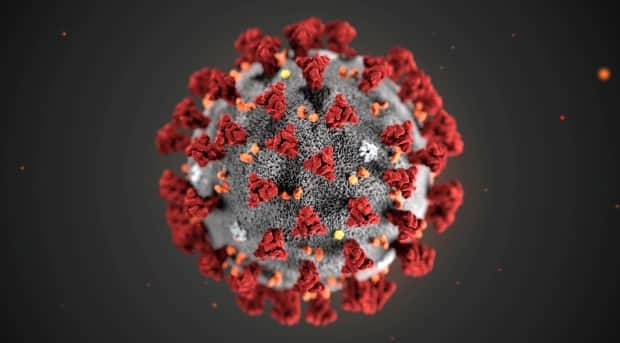UBC infectious disease expert says 'soft approach' not enough, public health efforts 'inadequate'
A top infectious disease expert at the University of British Columbia is the latest voice in a chorus of experts calling for Canada to "test, test, test," as directed by the World Health Organization (WHO) earlier this week.
Dr. Peter Phillips said Friday it's critical Canada start to aggressively test, trace and quarantine people with the coronavirus, following the lead of countries that have successfully slowed the spread of COVID-19.
Currently in B.C., coronavirus testing is focused on health workers, patients in hospital with respiratory symptoms or people who are part of an outbreak investigation.
He said information emerging from Taiwan and South Korea point to what works. Widespread testing in South Korea has been credited with helping to contain the outbreak.

"We have to take the lessons... We need to adopt what they've been doing," said Phillips.
Ditch 'soft approach'
"We have not had a credible quarantine process. It should not be an 'ask.' It should be a requirement. We've had a soft approach to quarantining individuals coming into the country and maybe importing infection inadvertently."
Health authorities in Canada confirm testing is being "rationed" until more kits become available from commercial suppliers. About 66,000 people have been tested nationally, 17,000 of those in B.C.
"To get on top of this and contain it you need to aggressively test in the community and keep testing until you've got it all," he said.

Listen to lessons
Increased testing can also give a truer picture of a pandemic. Death rates are estimated between 0.28 and 10 per cent in different countries, but the missing data — all the uncounted mild infections — could dramatically lower that number.
Phillips said it's also crucial to track people who may have been exposed because research is showing they may be infectious days before symptoms appear.
In an email to CBC earlier this week, the B.C. Ministry of Health said there are enough supplies to test those who need testing, and the risk of asymptomatic spread it very small and not driving the outbreak.
"It is when people have symptoms that they are the most infectious, which is why the province is strongly encouraging self-monitoring and self-isolating if any symptoms do appear," said Holly Tally, public affairs officer in an email on March 18.

Other experts say over-testing is no panacea.
Dr. Bhagirath Singh is the director of the Centre for Human Immunology at the University of Western Ontario.
He said testing — especially if it comes up negative — can give people a false sense of safety, as false negatives do happen.
"Testing just for the sake of testing is not going to help anyone. That actually makes things worse. People will say, 'Well, I was tested and I'm fine,' " said Singh in an interview earlier this week.
But Phillips said right now B.C.'s disease containment model is missing cases. Travellers with mild symptoms are being sent home to self isolate.
'The numbers are grim'
Phillips said it is important not to let too many people get sick at once given the limited number of ventilators and intensive care beds in this province. In B.C. there are 1,272 ventilators and 11,302 acute care beds, according to the ministry.

Phillips estimated that 10-60 per cent of Canadians could get infected, or 3.7 million to 22 million people.
"You do the math. The numbers are grim," said Phillips.
He wants to see these improvements:
Supervised quarantine for incoming travellers.
Broader testing.
Aggressive tracing of anybody who is in contact with a suspected case during the 48 hours before symptoms.
Federal assistance to get more supplies like masks, gowns and eye protection, to deal with burgeoning case load.
An expansion of medical wards and intensive care beds, ventilators and personal protection equipment beyond the $500-million promised.
If you have a COVID-19-related story we should pursue that affects British Columbians, please email us at impact@cbc.ca.


